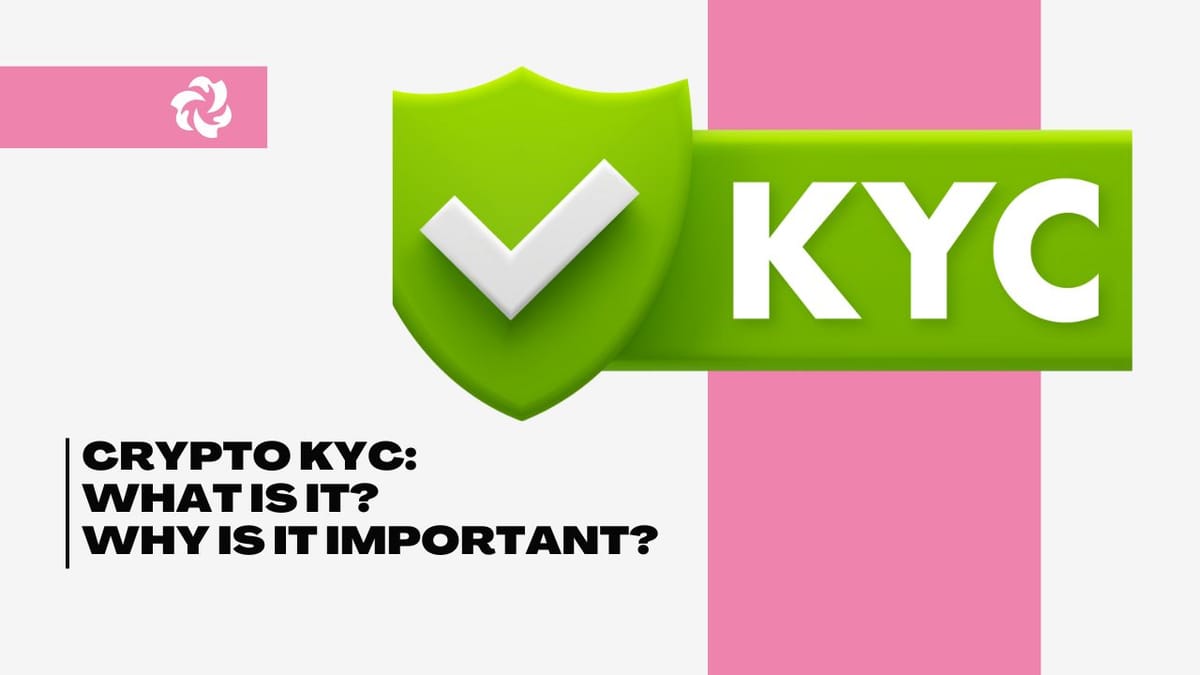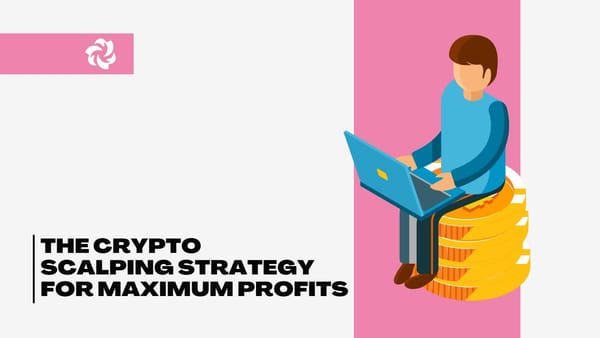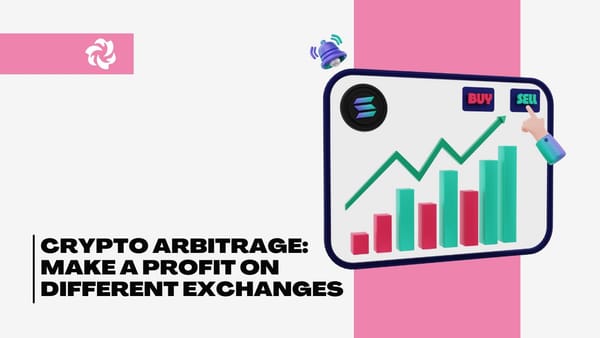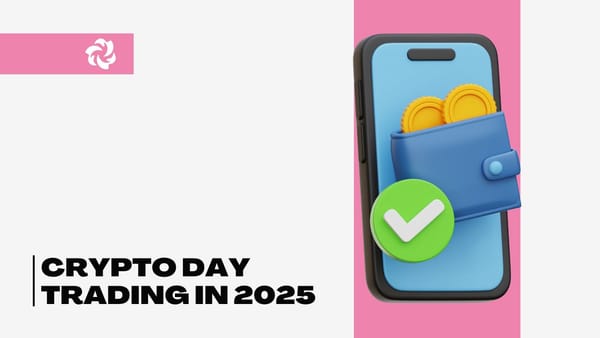Crypto KYC: What Is It? Why Is It Important?

So, you're getting into crypto and hearing a lot about KYC, right?
It sounds like another hurdle, but understanding crypto KYC is actually pretty important for your trading journey.
Think of it as the digital handshake that keeps things safe and sound in the crypto world.
Let's break down what crypto KYC is all about and why you should care.
Key Takeaways
- Crypto KYC, or Know Your Customer, is a process used by crypto platforms to verify user identities.
- It's vital for stopping money laundering and other financial crimes in the crypto space.
- KYC helps protect legitimate users from fraud and keeps exchanges compliant with laws.
- The process usually involves submitting personal documents for verification.
- While KYC helps security, it also brings up concerns about user privacy and how it affects decentralized systems.
Understanding Crypto KYC
When you first get into crypto, it can feel like a whole new world, and understanding the basics is key.
That's where knowing your customer, or KYC, comes into play.
It's a standard practice in many industries, but it's especially important in the digital asset space.
Think of it as the digital handshake that helps make sure everyone is who they say they are.

What is Know Your Customer (KYC)?
Basically, Know Your Customer (KYC) is a process that businesses use to verify the identity of their clients.
It's not just about checking a name; it involves gathering and verifying information to confirm you are a real person and not someone trying to hide their tracks.
This helps prevent illegal activities like money laundering and fraud.
For example, when you sign up for a new bank account, they'll ask for your ID and maybe proof of address.
It's the same idea in crypto, just adapted for the digital world.
This process is a big part of making sure platforms are operating legally and securely.
The Role of KYC in Digital Asset Exchanges
On crypto exchanges, KYC plays a pretty big role.
It's how these platforms meet legal requirements and build trust with their users.
By verifying identities, exchanges can prevent bad actors from using their services for illicit purposes.
This also means that legitimate users, like yourself, are trading in a safer environment.
It’s a way to keep the playing field fair and secure for everyone involved.
Bloom Bot, for instance, is designed to make trading simpler, and while it focuses on features like sniping and automated trades, the underlying exchanges you might use it with will likely have their own KYC procedures.
Why Crypto KYC is Essential
So, why is this whole KYC thing so important in crypto?
Well, it's a multi-faceted answer.
Firstly, it's a major tool in the fight against financial crimes.
By verifying who is transacting, it becomes much harder for criminals to use cryptocurrencies for illegal activities.
Secondly, it protects you, the legitimate user.
Knowing that the platform is taking steps to weed out bad actors means your assets and personal information are generally more secure.
Finally, it's all about regulatory compliance.
Governments worldwide are paying more attention to crypto, and exchanges need to follow the rules to operate legally.
This helps the entire crypto ecosystem mature and gain wider acceptance.
It’s a necessary step for building a more stable and trustworthy financial future.
KYC procedures are a critical component in safeguarding the integrity of financial systems, both traditional and digital. They act as a gatekeeper, helping to deter illicit financial flows and maintain confidence in the platforms that facilitate these transactions.
It's a bit like having security at a concert; you might have to show your ticket and ID, but it makes the event safer for everyone who wants to enjoy the music.
In the crypto world, KYC is that security check, helping to keep things running smoothly and securely for all users.
The Importance of Crypto KYC
Combating Financial Crimes
When you're trading crypto, you want to know that the platform you're using is doing its part to keep things safe.
That's where Know Your Customer (KYC) comes in.
KYC is all about verifying who you are.
It helps exchanges and other services make sure that people aren't using fake identities to move money around.
This is a big deal for stopping things like money laundering and funding for illegal activities.
By checking identities, these platforms can build a more secure environment for everyone.
It’s a key part of making sure the digital asset space is legitimate and not a playground for criminals.
Think of it as a digital ID check for your crypto activities, helping to keep the whole system cleaner.
This process is vital for the integrity of financial systems.

Protecting Legitimate Users
Beyond stopping bad actors, KYC also looks out for you, the regular user.
When platforms verify identities, they create a safer space for honest traders.
It means fewer scams and less risk of your account being compromised by someone else.
For instance, if you're using a tool like Bloom Bot to manage your trades, knowing that the platform has strong identity checks adds another layer of confidence.
You can focus on your trading strategy, like setting up AFK Mode or using limit orders, without worrying as much about fraudulent activity impacting your account.
It’s about building trust so you can trade more freely.
Ensuring Regulatory Compliance
Governments and financial bodies around the world are paying more attention to crypto.
KYC is a major part of how crypto businesses stay on the right side of the law.
By following these rules, exchanges can operate legally and avoid hefty fines or shutdowns.
This compliance means you can rely on these services to be around for the long haul.
It also means that when you use a platform, you're interacting with a business that's meeting industry standards for security and accountability.
For example, Bloom Bot, which helps you manage trades on the Solana blockchain, operates within this framework, aiming for both user-friendliness and adherence to regulations.
How Crypto KYC Works
So, you're wondering how this whole crypto Know Your Customer (KYC) thing actually works?
It's not as complicated as it might sound.
Think of it as the digital handshake that confirms you are who you say you are when you're dealing with crypto platforms.
It's a standard procedure designed to keep things safe and sound for everyone involved.
Bloom Bot, for instance, integrates with Telegram, making many processes, including trading, accessible from your phone, but the underlying principles of verification are similar across many services.
Identity Verification Process
The first step in the KYC process is all about confirming your identity.
This usually kicks off when you sign up for a service.
You'll be asked to provide some basic personal details.
This is where Bloom Bot's ease of use comes into play; while it focuses on trading, the initial setup for any financial service often starts with these foundational identity checks.
You'll typically need to give your full name, date of birth, and your residential address.
This information is the starting point for verifying who you are.
Document Submission and Review
After you've provided your basic details, the next stage involves submitting documents to back up your claims.
This is a pretty standard part of the process.
You might be asked to upload a clear photo or scan of a government-issued ID, like a driver's license or passport.
Sometimes, proof of address, such as a utility bill or bank statement, is also required.
These documents are then reviewed by the platform, often using a mix of automated systems and human checks, to confirm they match the information you initially provided.
This verification step is key to completing the onboarding process.
Data Security and Privacy
Now, you might be thinking, "What about my data?" That's a fair question.
Reputable crypto platforms understand that your personal information is sensitive.
They employ robust security measures to protect the data you submit.
This often includes encryption and secure storage protocols to prevent unauthorized access.
Bloom Bot, for example, emphasizes security with features like anti-MEV protection, showing a commitment to safeguarding user assets and information.
When you submit your documents, you can expect the platform to have systems in place to keep that information private and secure.
Benefits of Crypto KYC
So, you've gone through the whole Know Your Customer (KYC) process for your crypto activities.
It might have felt like a bit of a hassle, but there are some solid upsides to it.
Think of it as an investment in a safer and more functional crypto experience.
For starters, going through KYC really helps platforms beef up their security measures.
When everyone's identity is verified, it makes it way harder for bad actors to create fake accounts or carry out scams.
This means you're less likely to run into phishing attempts or other shady dealings on the platform.
It’s a big part of making sure exchanges are secure and compliant with regulations like MiCA, which is pretty important for the whole crypto ecosystem.
Beyond just security, completing KYC often unlocks access to more advanced features on crypto platforms.
Some services might restrict certain trading tools, higher withdrawal limits, or access to new token offerings until you've verified your identity.
It’s like getting a VIP pass to the full suite of services.
Plus, when a platform has a robust KYC process, it builds a lot of trust and credibility.
You know they're serious about following the rules and protecting their users, which is a good sign for the long haul.
This commitment to compliance is key for the future of cryptocurrency, helping to prevent illicit activities and build confidence.
It's also worth noting how tools like Bloom Bot integrate with these security measures.
While Bloom Bot itself is designed to be user-friendly, even for beginners, its features like anti-MEV protection help secure your trades.
When you combine a secure platform, thanks to KYC, with smart trading tools, you're setting yourself up for a better experience.
Bloom Bot, for example, offers features like AFK Mode and Copy-Trading that can automate your strategies, but having that underlying KYC security on the exchange you use adds another layer of confidence.
Challenges and Considerations
While Know Your Customer (KYC) procedures are vital for security and compliance in the crypto space, they aren't without their hurdles.
You might find that implementing these checks brings up a few tricky situations.
User Privacy Concerns
One of the biggest points of contention is how much personal information you have to share.
When you go through KYC, you're handing over sensitive data like your ID, address, and sometimes even more.
This naturally raises questions about how that data is stored and protected.
The risk of data breaches is a real worry, and nobody wants their personal details falling into the wrong hands.
It’s a balancing act between proving who you are and keeping your digital footprint private.
For instance, using a tool like Bloom Bot, which operates via Telegram, offers a level of accessibility, but the underlying KYC process still requires you to trust the platform with your information.
It's important to look for platforms that are upfront about their data security measures.

Global Regulatory Variations
Crypto doesn't really stick to borders, but regulations do.
What's perfectly legal and standard in one country might be a no-go in another.
This patchwork of rules makes it tough for exchanges and users alike.
If you're trading across different regions, you might have to deal with varying KYC requirements, which can be a real headache.
This complexity is something that companies in the crypto space are constantly trying to manage, as they aim to meet compliance and risk management needs across diverse markets.
Impact on Decentralization
This is a big one for many in the crypto community.
The core idea behind much of crypto is decentralization – taking power away from central authorities.
However, strict KYC requirements can feel like they're reintroducing that central control.
Requiring everyone to identify themselves before participating can go against the ethos of permissionless innovation that many were drawn to.
It's a constant debate: how do you keep things secure and compliant without losing the decentralized spirit?
This tension is a major consideration as the industry matures, and finding that middle ground is key.
The push for KYC in crypto is often framed as a necessary evil to prevent illicit activities, but it also introduces friction and potential privacy risks that can alienate users who value anonymity and decentralization. It's a delicate balance that the industry is still trying to perfect.
The Future of Crypto KYC
The landscape of cryptocurrency is always shifting, and so are the methods used to keep it secure and compliant.
When we talk about the future of Know Your Customer (KYC) in crypto, it’s really about how we can make these processes smarter, faster, and less intrusive, all while keeping bad actors out.
Think of it as upgrading the security system for your digital assets.
Technological Advancements
We're seeing a lot of cool tech coming into play.
Biometrics, like fingerprint or facial scans, are becoming more common for verifying who you are.
Blockchain itself is also being used to create more secure and transparent ways to manage identity information.
Imagine having a digital ID that you control and can use across different platforms without re-entering all your details every time.
This could really change how you interact with crypto services.
For instance, tools like Bloom Bot are already integrating advanced features to help users trade securely, and as the tech evolves, we can expect even more sophisticated security measures to be built into these platforms.
The goal is to make verification smoother, perhaps even happening in the background without you noticing, while still being super secure.
This is where things like Regtech solutions are making a big impact.

Industry Best Practices
As the crypto space matures, so do the standards for what’s considered good practice.
We're moving towards more consistent approaches to KYC globally, though there are still differences.
The idea of 'perpetual KYC' is gaining traction, meaning instead of just verifying someone once, systems will continuously monitor and update user information to catch any changes or suspicious activity.
This is a big part of the future of Anti-Money Laundering.
It’s about staying ahead of potential issues rather than just reacting to them.
This also means that platforms will likely focus more on risk-based approaches, applying stricter checks only when necessary, which could make things easier for most users.
The focus is on making sure that legitimate users can access services easily, while making it difficult for those with illicit intentions, which is a key aspect of addressing integrity in crypto.
Balancing Security and Accessibility
This is the big puzzle: how do you make crypto super secure without making it impossible for regular people to use?
That's the challenge for the future of crypto KYC.
On one hand, strong verification helps prevent fraud and keeps the ecosystem clean.
On the other hand, overly complicated or lengthy processes can turn people away, especially those new to crypto.
The aim is to find that sweet spot.
We want systems that are robust enough to meet regulatory demands and protect users, but also simple and quick enough that you don't spend hours verifying your identity.
This balance is key to making crypto more mainstream and accessible to everyone.
It’s about creating a secure environment that doesn't hinder innovation or user experience, and understanding the nuances of KYC and data privacy is part of that.
The Markets in Crypto-Assets Regulation (MiCA) is a good example of how regulations are trying to create a more unified and secure market, becoming fully applicable in January 2025, which will shape how businesses operate and verify users going forward MiCA regulation.
Ultimately, the future will likely involve more intelligent systems that can verify identity efficiently, possibly using a combination of the technologies mentioned, to create a safer and more user-friendly crypto world.
Thinking about how crypto will work in the future?
Knowing who is who is a big part of that. We're exploring how to make crypto safer and easier to use for everyone.
Want to learn more about these exciting changes and how they might affect you?
Visit our website today to get the latest updates and insights!
Wrapping Up Crypto KYC
So, that’s the lowdown on crypto KYC.
You’ve seen how it works and why it’s become such a big deal in the digital asset world.
While it might seem like an extra step, it’s really there to keep things safe and legit for everyone involved.
Think of it as part of the process that helps make crypto trading and investing a bit more secure, especially as more people start getting into it.
By understanding and going through these checks, you're playing your part in building a more trustworthy crypto space.
Frequently Asked Questions
What exactly is crypto KYC and why do platforms ask for it?
Think of KYC like showing your ID to prove you're you. For crypto, it means giving a crypto platform some personal info, like your name and address, to check that you're a real person and not trying to do anything shady. It helps keep things safe and follows the rules.
Why is KYC a big deal in the crypto world?
It's super important because it helps stop bad guys from using crypto for illegal stuff like money laundering or funding bad activities. By knowing who's using the platform, exchanges can block suspicious behavior and keep the whole system cleaner. Plus, it makes things safer for regular users like you and me.
How does the crypto KYC process typically work?
Usually, you'll need to provide some basic info, maybe upload a picture of your ID (like a driver's license or passport), and sometimes even a selfie or a picture of you holding your ID. They do this to make sure the person sending the documents is really you and that the documents are legit.
What happens to my personal information after I submit it for KYC?
When you give your info for KYC, the company is supposed to keep it super safe. They use special security measures to protect your personal details from hackers. It’s a big responsibility for them, and they have to follow strict rules about how they handle your data.
Are there any downsides or concerns about using KYC in crypto?
While KYC helps with security and following rules, some people worry it takes away from the private nature of crypto. Also, different countries have different rules, which can make it tricky for global platforms. And for some, it feels like it goes against the idea of a totally free and open system.
What's next for crypto KYC? How will it change in the future?
The tech is always getting better! We might see more advanced ways to check identities, maybe using AI or other smart tools, that are faster and even more secure. The goal is to find a good balance – making sure things are safe and legal without making it too hard for normal users to trade.
More Bloom Bot Guides:














